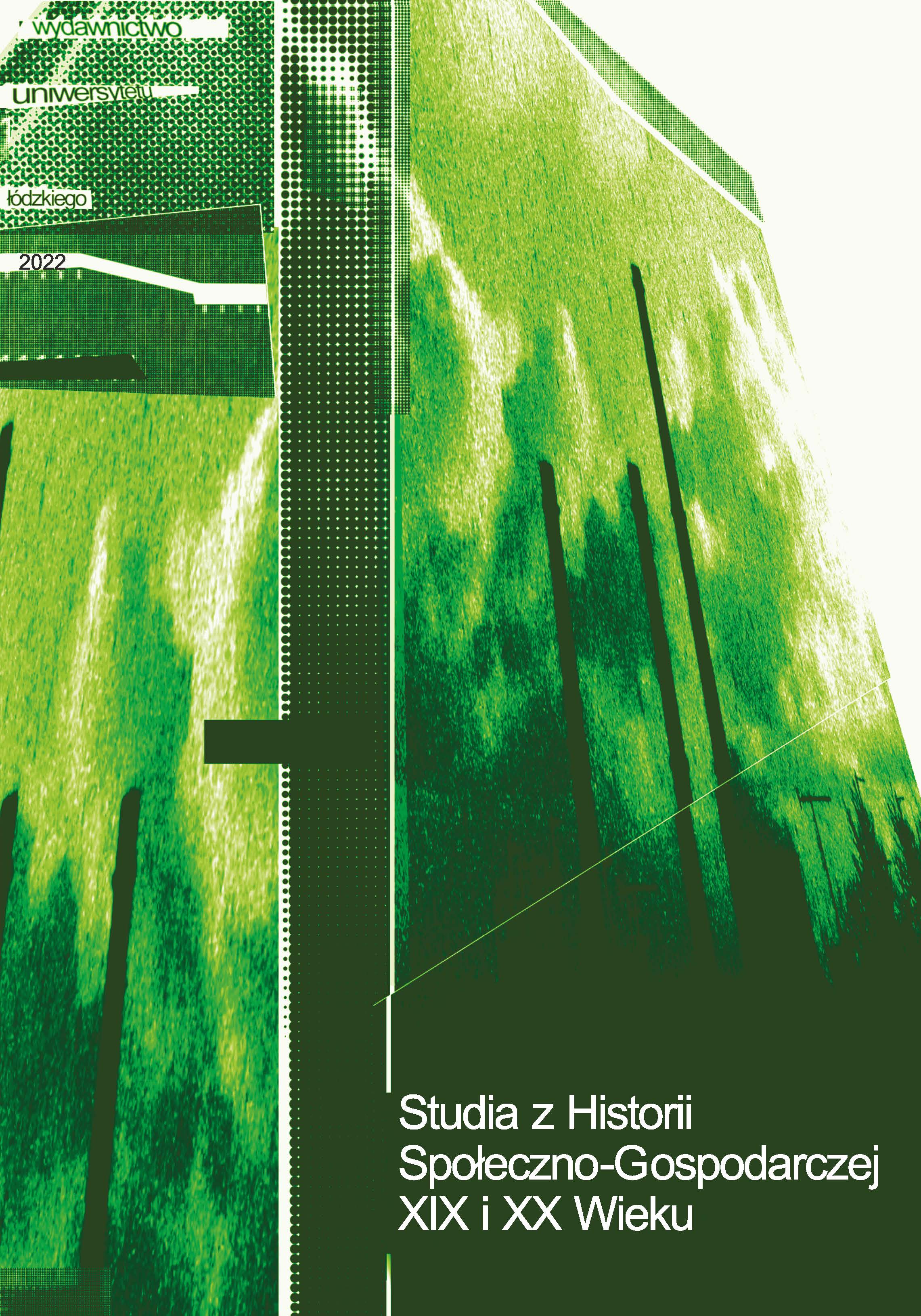The “Zet”Movement in the Second Republic of Poland towards the role of the state in the economy
DOI:
https://doi.org/10.18778/2080-8313.25.03Keywords:
Polish Youth Union “Zet”, Polish Political Thought in the 20th century, the Second Republic of PolandAbstract
The subject of the article is the presentation and analysis of the views of the representatives of the “Zet”-Movement in interwar Poland on the role of the state in the economy. The beginning of the “Zet”-Movement was the secret, pro-independence Union of Polish Youth “Zet”, established in 1886. Already during the partitions, it created a network of social, political, cultural and educational organizations. In the Second Republic of Poland the zetists still controlled numerous socio-political, cultural, educational and economic associations, supporting simultaneously the actions of Józef Piłsudski. After the May coup in 1926, they became part of the Piłsudski camp. They were in favor of introducing a presidential system. Zetists promoted the vision of Poland as a country pursuing a pro-social policy. They were advocates of the idea of the Republic integra-ting the region of Central and Eastern Europe. A characteristic feature of the economic concepts developed by the “Zet” was the emphasis on the need for the state to be involved in the economy. It was to be expressed in the use of economic planning on a national scale, the use of instruments of economic interventionism, and finally – in etatism. The attachment of “Zet” members to the principle of state participation in economic life resulted from their attitude to the very institution of an independent Polish state, in which they saw the “highest product” of the nation. They treated the possibility of their effective shaping of economic life as a complement to the influence of state institutions in the political and social sphere. At the same time, the operation of the state factor was supposed to influence, according to the zetists, the leveling of social opportunities, and in consequence – to supplement the slogan of political democracy with the idea of social justice.
References
Archiwum Akt Nowych, Zbiór Druków Ulotnych, sygn. 39.
Google Scholar
,,Droga” 1931.
Google Scholar
,,Kultura Polski” 1917.
Google Scholar
„Miesięcznik Młodzieży Polskiej” 1918–1919.
Google Scholar
,,Naród i Państwo” 1937, 1938.
Google Scholar
,,Polska Gospodarcza” 1936, 1937, 1938.
Google Scholar
,,Przełom” 1926, 1928, 1929, 1930, 1931, 1832, 1933.
Google Scholar
,,Solidarność Pracy” 1928.
Google Scholar
,,Wschód Polski” 1920.
Google Scholar
Bukowiecki S., Polityka Polski Niepodległej. Szkic programu, Warszawa 1922.
Google Scholar
Lechnicki T., O jasny program i zwarte działanie. I. Rolnictwo (szkic dyskusyjny), Warszawa 1937.
Google Scholar
Prus W. [Szczepanowski S.], ,,Zet” i Zjednoczenie. Wielka tajna organizacja młodzieży polskiej (1886–1914), Lwów 1937.
Google Scholar
W pięćdziesiątą rocznicę powstania ,,Zetu”. Sprawozdanie ze Zjazdu Uczestników Ruchu Niepodległościowego
Google Scholar
Związku Młodzieży Polskiej (,,Młodzieży Narodowej”) 28 i 29 XI 1936 w Warszawie, oprac. T. Piskorski, Warszawa 1937.
Google Scholar
Wańkowicz M., COP. Ognisko siły – Centralny Okręg Przemysłowy, Warszawa 1938.
Google Scholar
Wańkowicz M., Sztafeta. Książka o polskim pochodzie gospodarczym, Warszawa 1939.
Google Scholar
Wojciechowski J., Po nową treść. Z kuźni ideowej Związku Polskiej Młodzieży Demokratycznej, Poznań 1932.
Google Scholar
Zet w walce o niepodległość i budowę państwa. Szkice i wspomnienia, red. T.W. Nowacki, Warszawa 1996.
Google Scholar
Cat-Mackiewicz S., Historia Polski od 11 listopada 1918 r. do 5 lipca 1945 r., Londyn 1993.
Google Scholar
Gierat S., Podstawy ruchu młodowiejskiego, Warszawa 1935.
Google Scholar
Gołębiowski J., Spór o etatyzm wewnątrz obozu sanacyjnego w latach 1926–1939, Kraków 1978.
Google Scholar
Jędruszczak T., Piłsudczycy bez Piłsudskiego. Powstanie Obozu Zjednoczenia Narodowego w 1937 roku, Warszawa 1963.
Google Scholar
Katelbach T., Zet, ,,Zeszyty Historyczne” [Paryż] 1968, z. 13, s. 3–54.
Google Scholar
Kowalski B., Grupa Techniczna – Spółdzielnia Pracy. Monografia, Warszawa 1964.
Google Scholar
Marszałek L., Michał Grażyński, ,,Zeszyty Historyczne” [Paryż] 1983, z. 64, s. 91–131.
Google Scholar
Pilch A., Studencki ruch polityczny w Polsce w latach 1932–1939, Kraków 1972.
Google Scholar
Rakowski J., Ideologia gospodarcza epoki Józefa Piłsudskiego, ,,Niepodległość” [Londyn] 1948, t. 1, s. 117–135.
Google Scholar
Rechowicz H., Wojewoda śląski dr Michał Grażyński, Warszawa 1988.
Google Scholar
Turlejska M., Rok przed klęską, Warszawa 1965.
Google Scholar
Waingertner P., Konspiracja trzech pokoleń. Związek Młodzieży Polskiej „Zet” i ruch zetowy (1886–1996), Łódź 2017 i 2018.
Google Scholar
Waingertner P., Ruch zetowy w Drugiej Rzeczypospolitej. Studium myśli politycznej, Łódź 2006.
Google Scholar
Wierzbicka M., Problematyka ,,Przełomu” w latach 1926–1935, ,,Rocznik Historii Czasopiśmiennictwa Polskiego” 1963, t. 3, z. 1, s. 251–284.
Google Scholar
Downloads
Published
Versions
- 2024-04-11 (2)
- 2022-12-30 (1)
How to Cite
Issue
Section
License

This work is licensed under a Creative Commons Attribution-NonCommercial-NoDerivatives 4.0 International License.









